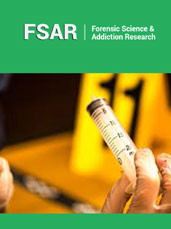- Submissions

Full Text
Forensic Science & Addiction Research
In What Another Case Does the Non-Applied the Principle Non Reformatio in Peius?
Jorge Isaac Torres Manrique*
Department of Law, USA
*Corresponding author: Jorge Isaac Torres Manrique, Department of Law, USA
Submission: April 02, 2019;Published: April 24, 2019

ISSN 2578-0042 Volume4 Issue4
Opinion
The principle non reformatio in peius, also known as the prohibition of the reform in worse or of pejorative reform, it is constituted in a guarantee of the procedural part that appeals of a decision in first instance. Thus, we have that principle: “(...)has its origin basically in the criminal procedure system, and that implies, that the legal consequence of a person (for any of the penalties of such system) can not be increased if the convicted person asks for the revision of it”.
In this sense, it should be noted that in respect of the various exceptions to the application of the aforementioned principle, in this installment we will refer to a different one, one that is related basilarly to the principle of legitimacy. In that order of thought, we refer specifically to the assumption where the penalty or sanction applied in the first instance (whether in jurisdictional or administrative sanctioning venue), is willing, notoriously and unreasonably, well below that determined by law.
We consider that in this case it is not appropriate to appeal the embrace or protection of the principle non reformatio in peius, in case of having appealed against it. This in virtue, that this principle finds its foundation and quintessence in the legitimacy of having been the object of the amount of a penalty or sanction established by law, that is, having as its budget the strict observance of the principle of legality. As examples we can refer (we will use extreme cases in order to make the basis of our proposal more evident):
1. The case of serious misconduct at the administrative level, the same one that involves a dismissal sanction, but which nevertheless, has incredibly received as a sanction a suspension of five days, and
2. When the accused has committed an offense for which he had a penalty of fifteen years and that inexplicably, has received by penalty, one year of imprisonment not effective.
So, we argue that the principle non reformatio in peius, should not unimismance to sanctify manifest illegality, where in good romance the return to the law is taken with an air of championship [1]. In addition, we consider that the nature of the principle non reformatio in peius, is to become the guardian of legal security, of legality, of the legal system, of legality and of legitimacy; as a principle that is. Ergo, its application in no way should contravene them.
Conclusion
Consequently, we are of the opinion that in such cases, the application of the principle non reformatio in peius, should not be accepted in any wayss, either in judicial or administrative sanctions.
References
© 2019 Jorge Isaac Torres Manrique. This is an open access article distributed under the terms of the Creative Commons Attribution License , which permits unrestricted use, distribution, and build upon your work non-commercially.
 a Creative Commons Attribution 4.0 International License. Based on a work at www.crimsonpublishers.com.
Best viewed in
a Creative Commons Attribution 4.0 International License. Based on a work at www.crimsonpublishers.com.
Best viewed in 







.jpg)






























 Editorial Board Registrations
Editorial Board Registrations Submit your Article
Submit your Article Refer a Friend
Refer a Friend Advertise With Us
Advertise With Us
.jpg)






.jpg)














.bmp)
.jpg)
.png)
.jpg)










.jpg)






.png)

.png)



.png)






